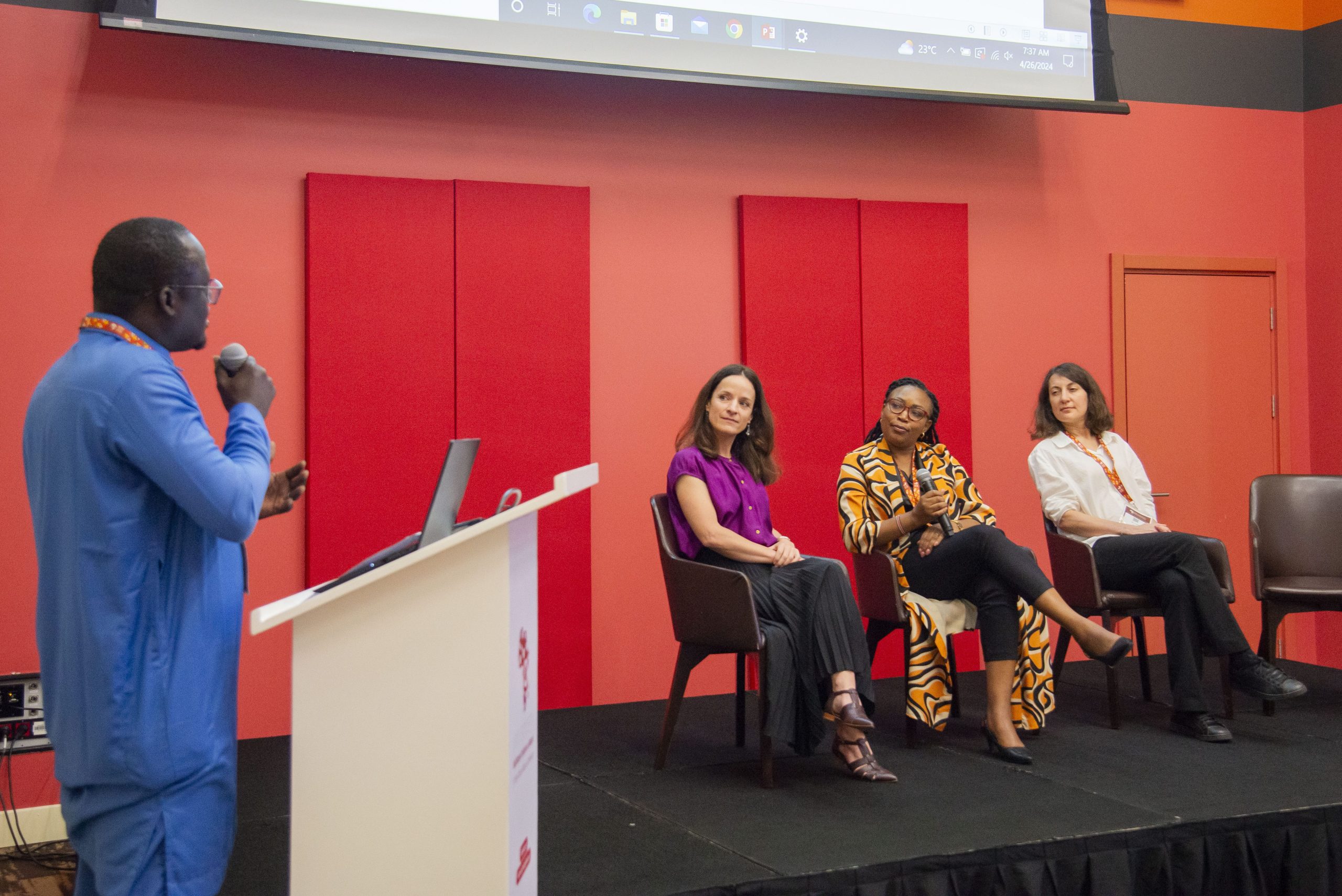The Outreach Network for Gene Drive Research organized a symposium on the margins of the Multilateral Initiative on Malaria (MIM Society)’s 8th Pan-African Malaria Conference held last week in Kigali, Rwanda. The event explored how novel genetic approaches could be integrated into the malaria toolkit and contribute to end malaria.

Damaris Matoke-Muhia presenting at the Outreach Network for Gene Drive Research symposium at MIM’s 8th Pan-African Malaria Conference
I had the pleasure of participating in the Network’s symposium “Integrating genetic approaches in the malaria toolkit” as a panellist alongside Lucy Okell, Imperial College London and Isabelle Coche, Secretariat of the Outreach Network for Gene Drive Research. The session was chaired by El Hadji Amadou Niang, Pan-African Mosquito Control Association (PAMCA).
Speakers discussed the potential of genetic approaches such as gene drive technologies to offer a sustainable, long term and cost-effective solution that could, in the context of integrated approaches to malaria control, contribute to the elimination of the disease. Presentations emphasized the need for collaboration, effective governance, multi-stakeholder engagement and strategic planning to support the effective integration of gene drive technologies into malaria control strategies.
The symposium also underscored the need for additional tools to eliminate malaria. Although existing malaria control interventions have helped save millions of lives, they are not enough to reach global malaria elimination targets. Emerging threats such as growing insecticide and drug resistance, climate change, the emergence and spread of invasive mosquito species are threatening to undo decades of progress in the fight against the disease.

Damaris Matoke-Muhia presenting at the Outreach Network for Gene Drive Research symposium at MIM’s 8th Pan-African Malaria Conference
My talk focused on the need to have a multi-sectoral approach to ensure balanced decision-making regarding genetic approaches for vector control. It is important that different stakeholders – as well as local communities who are affected by gene drive research and could one-day benefit from these tools – are involved in conversations around the research so that they can contribute to the development process and are able to make informed decisions. I also emphasized the importance of creating opportunities for engagement among researchers, developers, regulators, policy makers and different actors involved in gene drive research to ensure seamless community engagement that will enhance trust and build consistency in the information shared with communities.
To move the research forward and integrate genetic approaches into the malaria toolkit, speakers also pointed out the crucial role of the African Union, and the need to strengthen governance and partnerships. The importance of modelling to inform decision-making and demonstrate the potential of gene drive approaches for malaria control was also highlighted. Findings from modelling of gene drive releases in West Africa shared by Lucy Okell for example, showed that, when used alongside existing interventions, gene drive technologies could significantly reduce malaria transmission.
The symposium contributed to broader conversations on gene drive technologies that took place during the conference in Kigali. A number of sessions at the week-long event included considerations on gene drive technologies, underscoring the potential for these tools to play an important role in expanding the malaria toolkit and contribute to the elimination of the disease.

Panellists and Chair of the Outreach Network for Gene Drive Research’s symposium at MIM’s 8th Pan-African Malaria Conference
Convened by MIM Society in collaboration with the Ministry of Health-Rwanda and the Rwanda Biomedical Center (RBC), under the theme, “Grassroots Mobilization to End Malaria: Invest, Innovate & Integrate“, this year’s MIM conference brought together over 1500 leading researchers, policy makers, and innovators to deliberate on the status of malaria in Africa, share research findings, and discuss the challenges and efforts of controlling malaria on the continent.
